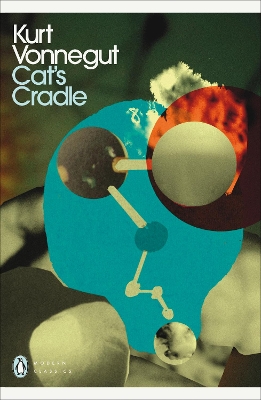Reviewed by adamfortuna on
Reading updates
- Started reading
- 28 October, 2015: Finished reading
- 28 October, 2015: Reviewed

With his trademark dry wit, Kurt Vonnegut's Cat's Cradle is an inventive science fiction satire that preys on our deepest fears of witnessing Armageddon - and, worse still, surviving it. This Penguin Modern Classics edition includes an introduction by Benjamin Kunkel.
Dr Felix Hoenikker, one of the founding 'fathers' of the atomic bomb, has left a deadly legacy to humanity. For he is the inventor of ice-nine, a lethal chemical capable of freezing the entire planet. Writer Jonah's search for his whereabouts leads him to Hoenikker's three eccentric children, to an island republic in the Caribbean where the absurd religion of Bokononism is practised, to love and to insanity. Told with deadpan humour and bitter irony, Kurt Vonnegut's cult tale of global destruction is a frightening and funny satire on the end of the world and the madness of mankind.
Kurt Vonnegut (1922-2007) was born in Indianapolis. During the Second World War he was a prisoner in Germany and present at the bombing of Dresden, an experience he recounted in his famous novel Slaughterhouse Five (1969). His first novel, Player Piano, was published in 1951 and since then he has written many novels, including The Sirens of Titan, Jailbird, Deadeye Dick, Galapagos and Hocus Pocus.
If you enjoyed Cat's Cradle, you might like Philip K. Dick's The Man in the High Castle, also available in Penguin Modern Classics.
'One of the warmest, wisest, funniest voices to be found anywhere in fiction'
Sam Leith, Daily Telegraph
'A free-wheeling vehicle ... An unforgettable ride!'
The New York Times
'Vonnegut looked the world straight in the eye and never flinched'
J.G. Ballard